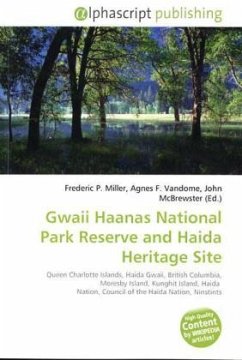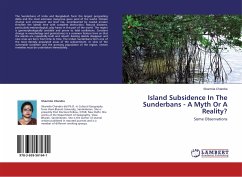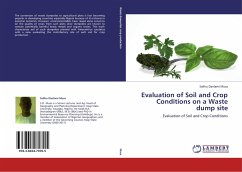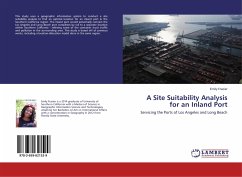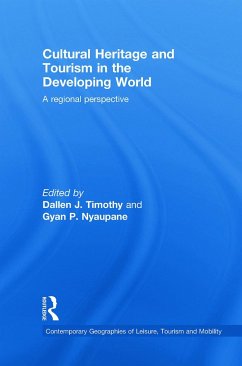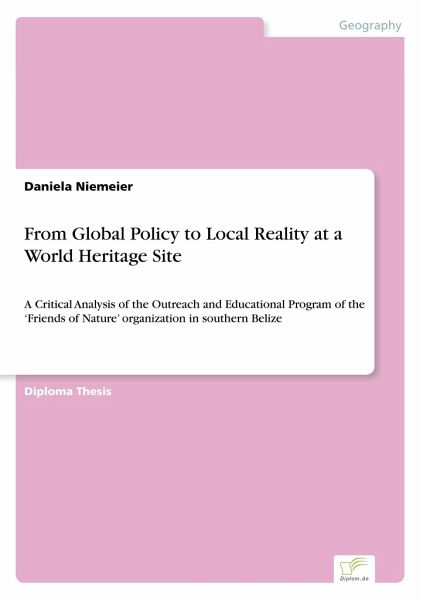
From Global Policy to Local Reality at a World Heritage Site
A Critical Analysis of the Outreach and Educational Program of the 'Friends of Nature' organization in southern Belize

PAYBACK Punkte
0 °P sammeln!
This paper examines existing challenges to the implementation of global United Nations policy guidelines on issues of outreach and adult education, as contained in the Convention on Biological Diversity (CBD), on the local level, using the Laughing Bird Caye National Park, a World Heritage Site co-managed by the Friends of Nature organization, as an example. For this analysis of conservational and educational issues, central categories such as livelihood, empowerment, community participation and community education, which are included in the new paradigm of protected areas management, compose ...
This paper examines existing challenges to the implementation of global United Nations policy guidelines on issues of outreach and adult education, as contained in the Convention on Biological Diversity (CBD), on the local level, using the Laughing Bird Caye National Park, a World Heritage Site co-managed by the Friends of Nature organization, as an example. For this analysis of conservational and educational issues, central categories such as livelihood, empowerment, community participation and community education, which are included in the new paradigm of protected areas management, compose the contextual backbone of the research. By use of Niklas Luhmann¿s system theory a dimensional theoretic embedding allows for the determination of communication processes between organizations of different levels and shapes. In the Caribbean region examined, the offshore reef and also the livelihood of the inhabitants of the coastal area are threatened. Information on local living conditions in social and economic terms, as well as their impact on and interactions with the natural environment is provided. The cross-cutting issues covered by the framework of the CBD, as listed under Article 13, target Communication, Education and Public Awareness (CEPA). The case analysed in this paper is schematically positioned according to its provisions in terms of space and habitats as pertaining to programmatic domains of the CBD. A multi-level analysis of the systemic interrelation between global policy and local reality is conducted. Problems that hinder conservationally sound and time-efficient communication processes are identified by means of a case study on the local organization and found to be primarily caused by insufficient management. Further obstructive influences from the national and global levels are identified. And include a lack of coordination and collaboration. Findings of the thesis indicate a need for increased networking and more transparency regarding decision making, these are strongly recommended for better practices on site and improvements for systemic communication development and information exchange worldwide.




